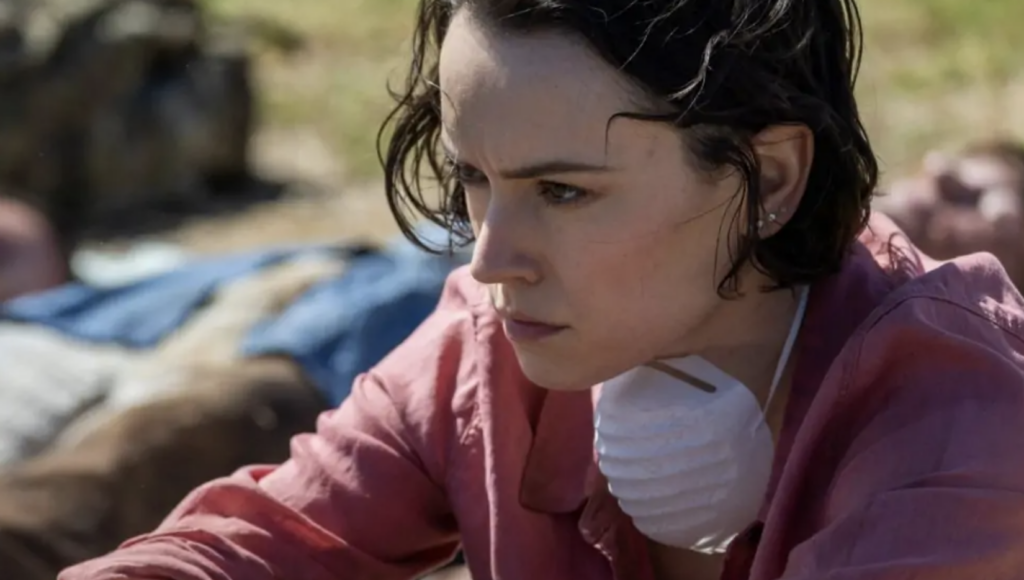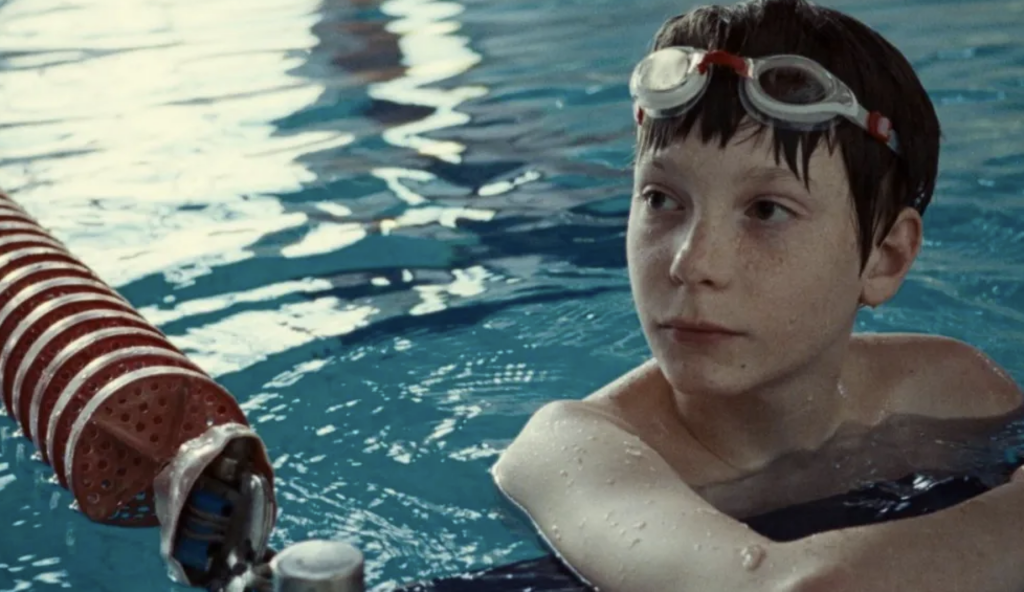Raging Bullwinkle
If one were to predict what movie released this year might kick off with an image of Lyndon Johnson, few would select The Adventures of Rocky and Bullwinkle. But the film has a good sense of history regarding its own quirky source material (as does its intended audience); thus, it starts with a newsreel-style setup explaining what has happened to the famous animated residents of Frostbite Falls, Minnesota, since their show was canceled in 1964 during the Johnson administration.
Both Bullwinkle J. Moose (voiced by Keith Scott) and Rocket J. Squirrel (June Foray) have been living on measly three-and-a-half-cent residual checks in the decades since their peak, and their bank account isn’t all that is in decline. The trees in Frostbite Falls have been chopped down, the rivers polluted with sludge, and the humble Narrator (also Keith Scott) has been forced to move in with his mother and resort to reciting clever commentary about her household chores. But all that changes after a Hollywood script-reader (Janeane Garofalo) unwittingly extracts cartoon fiends Boris (Jason Alexander), Natasha (Rene Russo), and Fearless Leader (Robert De Niro) from their Iron Curtain habitat of Pottsylvania, depositing them into modern-day Los Angeles.
Rocky and Bullwinkle are also summoned into the 3-D world. There they must thwart the wicked trio’s scheme of creating a numbingly banal network that will hypnotize viewers into becoming zombies who will elect Fearless Leader president of the United States. Teaming with fresh-faced FBI agent Karen Sympathy (Piper Perabo), moose and squirrel embark on a road trip to New York to stop the nefarious plan.
But as Bullwinkle says in the intro, “All this exposition is wearing me out.”
What’s encouraging about The Adventures of Rocky and Bullwinkle is that it genuinely attempts to capture the non-sequitur and joyously self-referential tone of the original NBC/ABC television program created by the late Jay Ward. For the most part, the film succeeds, with predictable complaints stemming from the stretch marks that plague all features based on TV/animated shows.
With a success level somewhere between the excellent Who Framed Roger Rabbit and the abysmal Cool World, the movie seeks to combine cartoon characters with a live-action world. It’s interesting that only the principles, Rocky and Bullwinkle, are animated while the villains are human. Conceptually, this works well (the mind lurches at the thought of movie stars dressed in animal costumes), even though Boris and Natasha are the least interesting element of the film — sad, considering Alexander and Russo are afforded top billing and for the most part have little to do or say, other than an extended conversation in which they discuss retiring. Here the bad-is-good dialogue is merely recycled bits that Gomez and Morticia used in The Addams Family series. (De Niro at least has one hilarious scene aping his “You talkin’ to me?” monologue from Taxi Driver.)
The film’s lead is really agent Sympathy, who is chipper and appealing in a role that is fairly ungrateful. Relishing the most screen time of any of the live-action players, she is also the only individual who has much interaction with Rocky and Bullwinkle — the No-Goodniks Boris and Natasha always seem to be kept at a distance. Predictably, there are a vast amount of cameos from stars who were no doubt raised on the original program, culminating in a courtroom scene with Whoopi Goldberg as Judge Cameo, whose performance is about as substantial as her character name.
Although one can’t fault the screenplay by Kenneth Lonergan (Analyze This) for being lazy, its hipness is often defused by inserting such inanities as a terrible I-like-this-new-music-called-hip-hop scene and a monotonous dance routine involving the Pottsylvanian contingent. Gags often stoop to the vaudevillian (“Allow me to be frank with you” — “Oh hi, Frank, I’m Bullwinkle”) or are watered down to where they are merely background, such as an odd consumer culture reference the moose keeps making about the over-corporatization of small towns in America. The sheer commitment to puns can be appreciated on a Shriner-style level, though. Favorites include characters crossing the Crymia River and consulting the military advisers General Foods, General Store, and General Admission. But for every zinger there’s a groaner, and the whole enterprise starts to wane during the second act.
Unlike Chicken Run, which seems to delight adults and children equally, much of The Adventures of Rocky and Bullwinkle is geared directly toward people mature enough to appreciate puns, pop culture allusions, and kitsch sight gags. As a story, it’s not exciting or visually dazzling enough to captivate younger viewers, who will likely be perplexed by the rapid-fire references. Just how many 8-year-olds are familiar with Lyndon Johnson, anyway?




